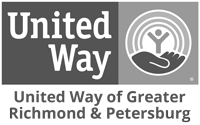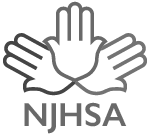According to the Better Business Bureau, over the last two years, some 70,000 frauds and scams have been reported across the United States.
Anyone can fall victim to a financial scam, but older adults tend to be particularly popular targets. Frequently, fraud perpetrated against older adults is not reported until long after the scam has occurred, usually because victims don’t realize they have been scammed or know where to report the scam, or because victims are too embarrassed to admit that they have been taken. Nevertheless, it’s important for older adults and caregivers to be aware of the signs that may point to a fraudulent scheme, and know what steps can be taken to prevent becoming victims of a scam.
Older adults are a popular target for scammers for a number of reasons:
They are more likely to own their own homes, have a nest egg that’s liquid and easily accessible, and have excellent credit.
Today’s generation of older adults were often raised to be kind, helpful, trusting, and polite–perfect qualities for a scammer to exploit, knowing that it’s hard for some to simply say “no.”
Though not necessarily true, Scammers believe that age has a tendency to affect memory, and scammers count on older adults not being able to remember important details when reporting a scam to the authorities.
Older adults, particularly women, are often living alone and more easily accessible.
Scams targeting older adults often occur in one of three ways–through the Internet, on the telephone, or in person. And just when you think you’ve heard of all the possible scams out there, scammers will come up with a new scheme. The FBI website (www.fbi.gov) has a section dedicated to fraud targeting older adults. The site describes a number of schemes that have been discovered. It’s a good idea to check this site regularly to keep updated on new scams. Here are some of the more popular scams that have victimized older adults.
Scams related to health care
There are a number of scams that focus on the new health-care law, health insurance and Medicare. These scams may focus on “Obamacare” benefits, claiming that there is a “limited enrollment period,” great insurance coverage including drug benefits for a low monthly cost, free medical equipment, low-cost drugs, or free medical tests given at nonmedical facilities like health clubs or shopping malls. To be on the safe side, don’t sign a blank insurance claim form, since your insurance company may be billed for items you never received; generally don’t do business over the phone or in person with a door-to-door salesman for medical services or benefits; and call your insurance carrier to be sure that what you’re supposed to be getting “free of charge” is actually covered by your insurance.
Telemarketing scams
We’ve all been subjected to telemarketing, and it isn’t always a bad thing. Some products and services are legitimate. However, telemarketing also serves as a way to scam people, especially older adults. Some warning signs that should prompt you to decline the offer include being told you “must act now or the offer won’t be good,” any offer that seems to be free (except that you have to pay for shipping and handling or administrative fees), the requirement that you provide your credit or debit card information or bank account number, and the suggestion that you “leave a check taped to your front door for a courier to pick up.” In any case, if the caller tells you it isn’t necessary to check out their company or consult family members or your lawyer, it’s probably best just to decline altogether.
Internet and e-mail scams
Older adults’ use of the Internet and e-mail is increasing daily, and so are Internet scams targeting them. Many such scams are based on getting credit or debit card information for services or merchandise that is never delivered. If you’re going to give out this information online, try to ensure that the site is secure and reputable. Depending on the Web browser you use, you may see a padlock icon or some other indication to symbolize that there’s a higher level of security to send important personal information, but it’s not a guarantee that the site is secure. Also, check out the source of the merchandise or service before buying. It should have a physical address and phone number(s) that actually work.
In another type of Internet scam, people send you an e-mail claiming to be in possession of large sums of money and need you to help them open a U.S. bank account. Often, they ask that you “seed” the account with your own money, and in return, they’ll pay you handsomely. Don’t believe this promise and don’t respond to the e-mail.
Here are a few things that may help you protect an elderly relative from being victimized by a scam:
Become familiar with your loved one’s finances
Recommend that they have any regular income directly deposited to their bank
Suggest that they consult you or someone else they trust before buying any service or product over the phone, online, or via the mail
Bottom line
In short, as we’ve all heard before, if it sounds too good to be true, it probably is. If you fall victim to a scam, in addition to reporting it to your local police, you can report it to the FBI through their electronic tip line found at www.fbi.gov. Please also alert the Central Virginia Better Business Bureau at www.bbb.org/richmond.






Leave a Reply